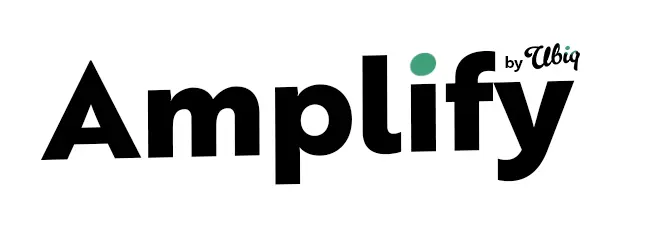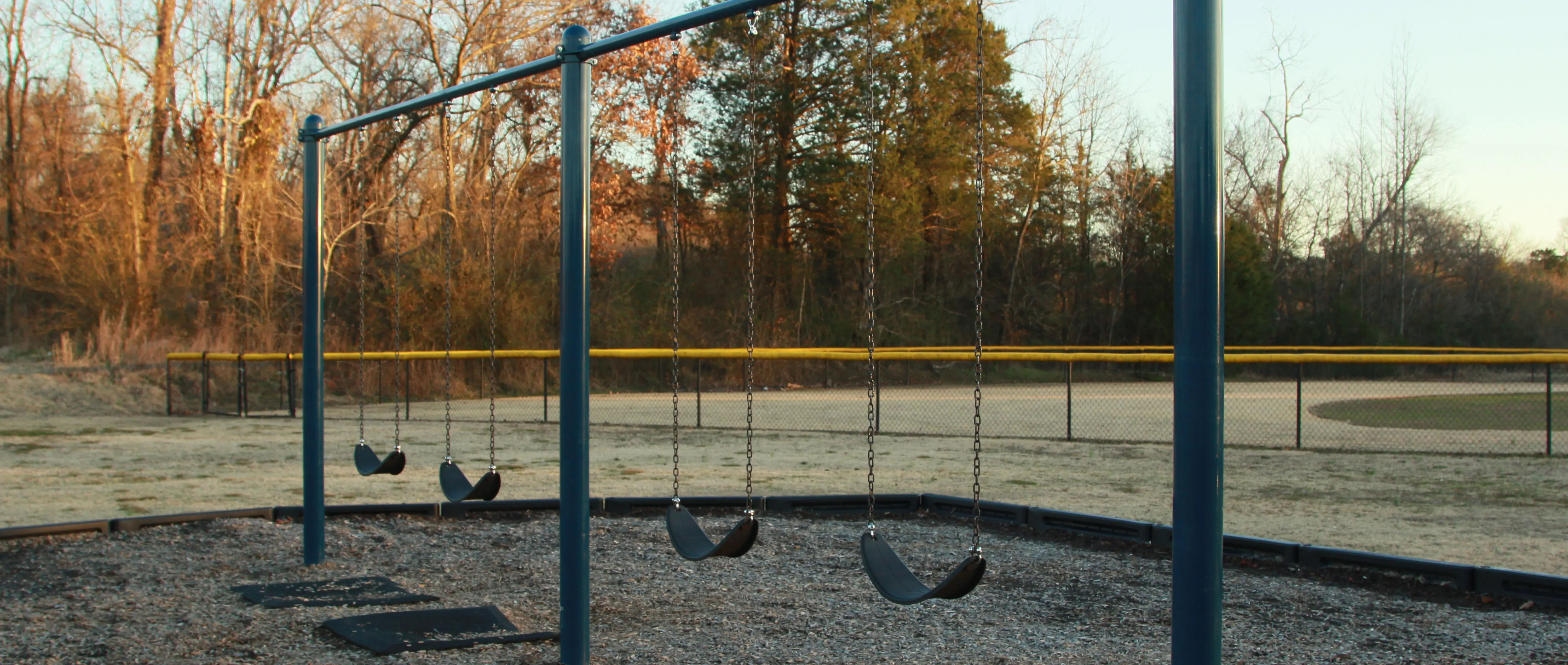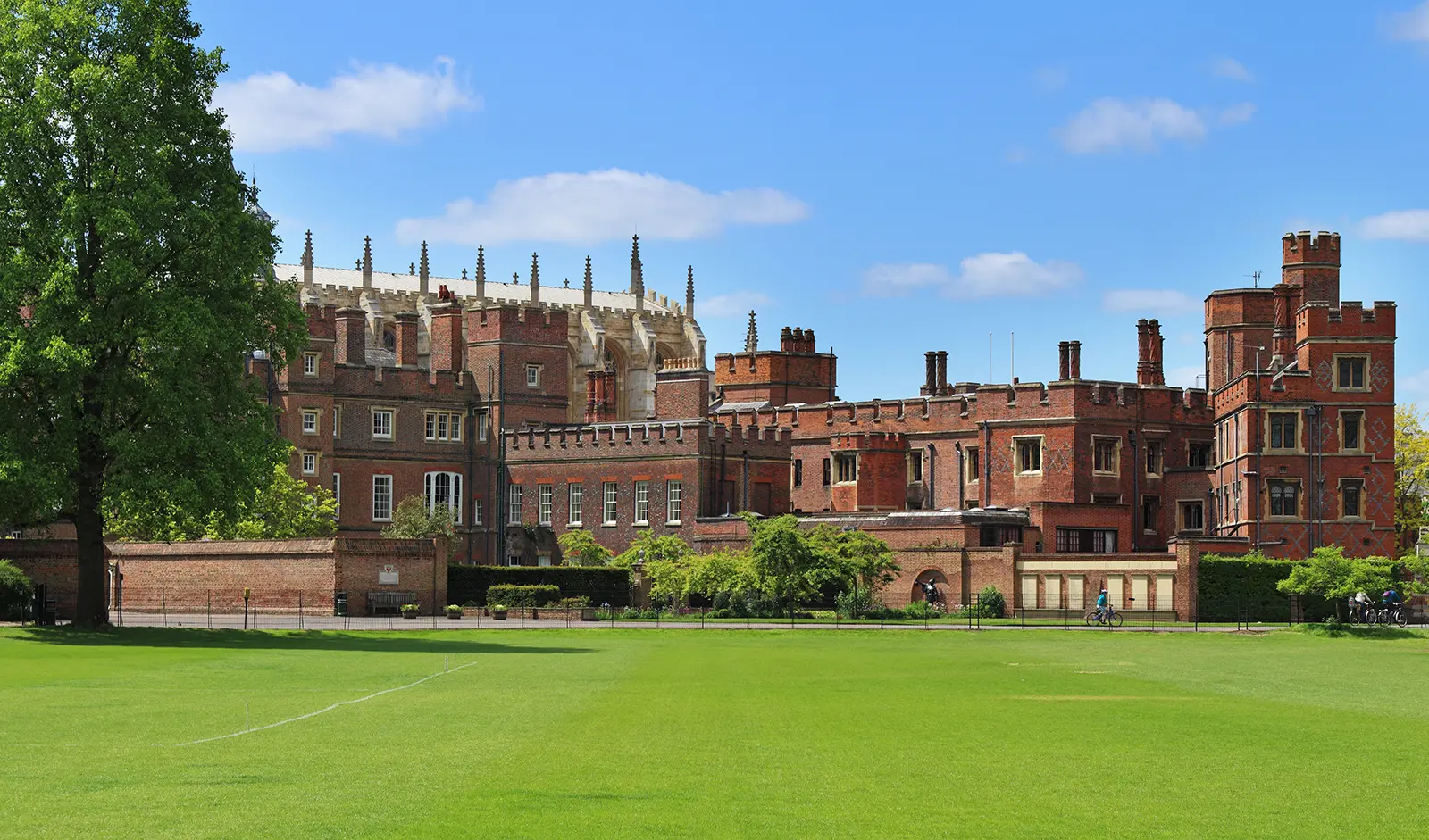Last Updated 14th October 2025
Over the past year, private schools in the UK have grappled with mounting financial pressures including the imposition of a 20% VAT on private school fees in the UK.
Join us as we explore which schools have closed, how it's impacting communities and how nearby private schools can responsibly navigate this turbulent period.
WHAT THIS ARTICLE COVERS:
What is the NEw VATOn Private School Fees?
In 2024 the Labour government in the UK announced it would remove the 20% VAT exemption on private school fees. The policy sent shockwaves through the independent education sector.
Since its implementation on January 1, 2025, this policy has been linked to a series of school closures, disrupting communities, and displacing students.
The government have estimated that this will raise £460 million in 2024/25, rising to £1.51 billion in 2025/26. Labour have claimed that this additional funding will be used towards state education.
Why are Private
Schools Closing?
Over the past year, private schools in the UK have grappled with mounting financial pressures. The pandemic left many institutions struggling with reduced enrollment and increased operational costs. Rising employer National Insurance contributions, reduced relief on business rates, and inflationary pressures compounded these issues.
Roisin Maguire (Former Head at St Joseph’s Prep) described the correlation between VAT and private school closures the "final nail in the coffin" for schools already teetering on the edge of financial viability.
Smaller independent schools, particularly those catering to local communities or offering specialized services, have been hit hardest. These institutions often lack the financial reserves or economies of scale enjoyed by larger schools. As a result, closures have accelerated since the VAT policy came into effect.
The majority of independent schools – like any business – operate to strict margins. An effective reduction in income of at least 15 per cent is serious – particularly now that it has been brought forward to January.
Mr Simon Head, Headmaster at Chafyn Grove School
On an average year, evidence suggests that around 50 private schools close every year in the UK, under normal circumstances. And there are many other factors at play including the rising costs and inflation, reduced birth rates and more besides.
The government have aknowledged that imposing VAT on fees will result in an estimated 37,000 pupils leaving the private sector, representing about 6% of the current private school population, but many critics warn this is a modest estimation.
VAT on Private School Fees:
An International Perspective
When implementing the new VAT policy - the Labour government argued that it would generate revenue to improve state education. Estimates suggest this policy could raise £1.5 billion annually by 2026. However, critics argue that it disproportionately affects smaller schools and middle-income families, forcing some parents to withdraw their children from private education.
Internationally, the taxation of private school fees varies. In many European countries, private education is heavily subsidized or exempt from similar taxes due to its role in complementing state education systems. For instance:
- In France and Germany, private schools often receive government funding to offset tuition costs.
- In the United States, private schools are typically exempt from sales taxes but rely heavily on tuition and donations.
The UK's approach is relatively unique in imposing such a significant tax burden directly on parents and schools without offering subsidies or relief measures. Greece remains the only other country to have imposed VAT on private school fees (since 2015), predicting the specific effects of this new legislation is complex.
What Impact will VAT on PrivateSchool Fees Have?
The government has admitted the difficulty in forecasting the exact outcomes. Nonetheless, several potential consequences have been identified:
- Increased Burden on Public Schools
The imposition of VAT on private school fees raises several concerns, primarily the likelihood that many parents will switch their children to public schools. In areas like Surrey, public schools are already facing high demand.
After the VAT announcement, there was a notable increase in public school applications. Between June and September of 2024, over 3,000 applications were received from children previously enrolled in private institutions.
This surge in demand for public school places may undermine the government's anticipated revenue from this policy. The intended financial support for disadvantaged students might not materialize as planned, as the increased revenue could be offset by the necessity to accommodate more students in public schools.
Despite claims from the Labour Party that there is ample capacity in public schools to absorb students from private schools, due to declining birth rates, recent data shows an increase of more than 18,000 students from 2023 to 2024. - Shift from Boarding to Day Schools
With boarding fees significantly higher than day school fees, it is probable, that many families will reduce boarding expenses to manage the increased overall educational costs. - Rising Demand for International Schools
Given that annual fees for private schools in the UK range from £17,000 to £40,000, a 20% increase is considerable. Many high-net-worth individuals (HNWIs) who own properties abroad or are expatriates may consider relocating their children's education to international settings. This could lead to a significant rise in demand for British International Schools.
List of Private SchoolClosures 2025
This list is by no means exhaustive. Some schools and trusts are choosing to merge their sites, in order to make an operational saving.
Here is our round-up of the 31+ schools we know are facing closure in 2025 due to the new VAT on private schools.
- Loughborough Amherst School
284 pupils | Co-ed | Day school
Part of Loughborough Schools Foundation in Leicester has confirmed their closure at the end of summer term 2025. - Maidwell Hall School
160 pupils | Co-ed | Boarding and Day school
Part of the Uppingham Group, Maidwell Hall is confirmed to be closing at the end of summer term 2025. -
The Village Prep School
140 pupils | Girls only | Day school
The Village is and all girls school in Camden run by Chatsworth schools. They announced the closure would come at the end of summer term 2025. -
Oxford House School, Colchester
120 pupils | Co-ed | Day schoolCognita schools announced the private school in Colchester will close at the end of Summer term 2025.
A Cognita spokesman said: “It is with great sadness that we have communicated to parents and staff that we are proposing to close Oxford House School in Colchester at the end of the summer term 2025
-
Moorland School, Clitheroe
190 pupils | Co-ed | Boarding and Day school
The senior school made the abrupt announcement about their private school closure with only days' notice. The Nursery and Junior schools will remain open for the foreseeable future. -
Fulneck School, Pudsey
294 pupils | Co-ed | Boarding and Day School
The prestigious 270 year old school will be closing it's doors by 8th July. -
S. Anselm's Preparatory School, Bakewell
134 pupils | Co-ed | Boarding and Day School
Whilst the school has officially announced it's closure, there have been ongoing talks to try and form community support and/or donations to secure the school's future. As of 20th May 2025, there have been reports that the community involvement may have saved the school from closure, but there hasn't been official confirmation of this yet.
"The addition of VAT on school fees, having to pay increased National Insurance contributions, and the removal of business rates relief for independent schools - it is now unsustainable to keep the school open"
Mr Houghton, Chairman of Govenors at S. Anselm's prep school
-
Ursuline Preparatory School
93 pupils | Co-ed | Day school
The Catholic day school has proposed it's closure at the end of the academic year. -
The Royal School, Haselmere
190 pupils | Co-Ed | Boarding and Day school
The Royal school, whose history dates back to 1840 and forms part of the United Learning group will close on 31st August 2025. -
Fairfield School, Backwell
129 pupils | Co-ed | Day school
The school's governors announced the school will closing August 2025. -
Bedstone College, Shropshire
152 pupils | Co-ed | Boarding and Day
Bedstone College, has cited financial issues – including VAT on fees – as a contributing factor to the decision to close at the end of summer term 2025. -
Highfield Prep School, Maidenhead
94 pupils | Part girls only, part co-ed | Day school
Part of the Chatsworth Schools group has proposed closure end of summer term 2025. -
Godolphin Prep School, Salisbury
60 pupils | Girls school | Boarding & Day school
The prep school has been facing challenges. Despite the partnership between Godolphin and local Chafyn Grove school, the Godolphin prep school arm, will be closing end of summer term 2025. -
St Hilda's Prep School, Bushey
151 pupils | Girls school | Day school
Run by the Aldenham Foundation, the school announced that it was consulting on possible closure in summer 2025. -
St Joseph’s Park Hill, Burnley
128 pupils | Co-ed Catholic Primary | Day schoolRun by Our Lady of Mercy, the Catholic school opened in 1913 and was rated ‘excellent’ in all areas by the Independent Schools Inspectorate. The school announced the confirmed closure on 4th April.
-
Falcons School, Putney
134 pupils | Co-ed Prep | Day schoolRun by Inspired - they have formally announced the school will be closing at the end of the academic year (Thursday 10th July).
-
Woodcote House, Surrey
82 pupils | Boys' Prep | Day schoolThe historic, family-run prep school was a longstanding feeder school to the likes of Eton and Harrow. Having also announced a closure at the end of the academic year, the school cited VAT as having alarmed some families. And that it was a contributing factor to the sharp fall in interest.
-
St George's Prep, Boston, Lincolnshire
77 pupils | Co-ed Prep | Day schoolThis prep school regularly received glowing ISI reports and was Ofsted Outstanding. But despite their best efforts, the school has been losing money. This year, there has been a notable fall in pupil numbers and new enquiries. Compounded by the VAT and NI increases, the school sadly confirmed it would close at the end of the academic year.
-
Talbot House, Bournemouth
150 pupils | Co-ed Prep | Day schoolClosing at the end of July - Talbot House has a 50-year history. But like many others in our growing list have found it financially unsustainable to stay open.
-
Kingscourt School, Hampshire
125 pupils | Co-ed Prep | Day schoolThe second Cognita school in our list, proposing closure at the end of Autumn Term 2025. Despite glowing inspections and academic results, it's one of many schools that Cognita deems unsustainable financially.
-
Wakefield Independent School, Yorkshire
144 pupils | Co-ed Prep | Day schoolFollowing a lengthy consultation period, the school's owner made the 'profoundly sad' announcement that they're considering closure at the end of this academic year. As with many of the schools, they have cited several legislative changes as a large contributing factor. Such as the increase in NI, minimum wage, business rates, and VAT on private schools.
-
St Clare's School, Porthcawl
250 pupils | Co-ed | Day schoolA top Welsh independent school, and the third Cognita school to announce a proposed closure in our list. St Clare's has consistently posted impressive exam results, but after 85 Years will be shutting its doors.
-
Oakleigh House, Swansea
140 pupils | Co-ed Prep | Day schoolThe only independent school to serve the Swansea area, is sadly shutting after 100 years.
-
Cornfields School, Ashford & Bell Vue School, Cranbrook
110 pupils | Special Educational Needs | Day schoolsThe two special independent schools have announced closure with only two weeks' notice. Both will be shutting their doors on 2nd July 2025.
-
Queen Margaret's School, York
200 pupils | Girls School | Day & BoardingThe independent boarding and day school for girls aged 11-18, dates back to 1901. Having posted about their closure on the 13th June 2025, the Chair of the Board of Governors, Terry Burt, stated they are “unable to withstand mounting financial pressures.”
-
Bishop Challoner School, Bromley, Kent
270 pupils | Co-ed | Day & BoardingThe Catholic school confirmed its closure at the end of the academic year (4th July 2025) in a statement released in June. The announcement cited “falling birth rates, rising living costs, and more recently the impact of VAT on school fees” as the reason behind declining pupil numbers.
-
Brookes UK School, Bury St Edmunds
158 pupils | Co-ed | Day & BoardingThe Risby school, part of the Brookes Education Group, announced closure with immediate effect due to insolvency on 28th July. Group leaders cited "mounting financial pressures, reduced enrolment, unpaid fees and the cumulative impact of wider economic challenges."
-
Bishopstrow College, Warminster, Wiltshire
104 pupils | Co-ed | Day & BoardingOn the 25th June, due to the insolvency of their parent company, 'International Future Education', Bishopstrow College announced its immediate closure.
-
Padworth College, Reading
100 pupils | Co-ed | Day & BoardingAlso part of International Future Education, Padworth College in Reading announced it's closure on the 25th June too.
-
Mount St Mary's College & Balborough Hall School
600 pupils | Co-ed | Day & BoardingA shock announcement was made on Wednesday, 30th July, that the two schools would shut with immediate effect. The independent Catholic institutes offered both day and boarding for children aged 3 to 18. They'd said despite “generous loans” worth £3m in recent years, it has “no realistic path” to solve its debt problems and must shut immediately.
-
Our Lady's Abingdon (OLA), Oxfordshire
360 pupils | Co-ed | Senior Day SchoolThe 160 year old private school was in talks with governors and other local schools to find a way of mitigating a closure. However unable to find a suitable solution, the school made a shock announcement on 11th August, leaving families only a couple of weeks to find new arrangements. A message on the school website cited a range of economic pressures including "the introduction of VAT on school fees, higher National Insurance contributions, the ending of business rates relief for independent schools, and rising operational costs."
-
King Alfred School, Lower Gornal, Dudley
47 pupils | Co-ed | Day School
Announced permanent closure at the end of August 2025 due to spiralling costs, specifically referencing the new VAT on school fees as a primary factor. -
OneSchool Global Long Eaton Campus, Nottinghamshire
80 pupils | Co-Ed | Day School
Part of the OneSchool Global group, the school closed in 2025 with students being merged with another school in Coventry. The campus has now been put up for sale for £2 million.
List of Known
School & Trust Mergers
As financial pressures mount across the independent education sector, many schools are exploring mergers as an alternative to closure. These strategic partnerships allow institutions to share resources, reduce operational costs, and maintain educational provision while adapting to the challenging economic climate.
- Radley College and The Prep Schools Trust
Radley College has partnered with The Prep Schools Trust to form the Radley Schools Group. This merger aims to strengthen the preparatory school pipeline while leveraging shared expertise and resources across the group's educational portfolio. - St Hugh's School & The Repton Family of Schools
St Hugh's School in Woodhall Spa, Lincolnshire, announced in a LinkedIn statement that it would become part of The Repton Family of Schools in September 2025.
The co-educational prep school will retain its unique identity, leadership, location, and traditions, while gaining access to the opportunities, resources, and expertise of a dynamic and expanding group. - Box Hill School & Reigate Grammar School
The Surrey-based boarding school for students aged 11 to 19 has relaunched as RGS Surrey Hills after joining the Reigate Grammar School (RGS) Group. Located near Dorking, the school will retain its staff, unique identity, and own leadership team while benefiting from the support and shared opportunities of the award-winning RGS Group. The curriculum, including International Baccalaureate (IB) and A-levels, remains unchanged. In their announcement, the school stated: "This partnership strengthens what we already do so well: offering a nurturing, academically ambitious education with strong values at its heart." - Lochinver House School & Haberdashers' Elstree Schools Group
On May 21st, Lochinver House School, a prep school in Potters Bar, Hertfordshire, announced it would merge with the Haberdashers' Elstree Schools group in September 2025. The group consists of Haberdashers' Boys' School and Haberdashers' Girls' School. A statement on Lochinver's website explained: "Schools across the UK are looking at ways to improve their financial stability and educational offer with the growth of not-for-profit educational groups and multiple mergers." The merger aims to share resources and expertise, help manage cost rises to parents, improve financial sustainability, attract teaching talent and provide enhanced career development opportunities for staff. - Windlesham House School & Charterhouse School
It emerged on May 15th that Windlesham House School in West Sussex – notably one of only a few prep schools in the UK not to have a uniform – was to merge with Charterhouse School in Surrey. The merger represents a strategic partnership between the preparatory and senior independent schools. - Park Hill School & Westbury House School
Park Hill School is converting into a full-time nursery, while the prep school element will merge with Westbury House School from January 2026. Both schools are part of the Inspired Learning Group, allowing for streamlined operations and resource sharing within the existing educational framework. - Shrewsbury House Schools Trust
The trust has announced plans to consolidate the pre-prep site to the main Shrewsbury House site.
How Local Private SchoolsCan Respond to a Closure
The closure of private schools presents opportunities for local independent institutions to absorb displaced students. However, this must be handled with care for affected families and staff. Key considerations include:
- Sensitivity to Disruption: Recognise that closures result in job losses for teachers and staff, as well as significant upheaval for students and their families.
- Transparent Communication: Schools welcoming new students should communicate clearly about admissions processes while avoiding any perception of exploiting closures for gain.
- Support Systems: Offering counseling or transition support for students can ease their adjustment to new environments.
- Community Engagement: Engage with local communities to ensure a smooth integration process while maintaining goodwill.
By adopting a compassionate approach, local schools can fulfilling their mission, grow their unique community and avoid negative PR.
Mitigating RiskFor Your Private School
If you're concerned about the implications of the new legislation and its impact on your school - strategic planning is key. Instead of making hasty decisions, savvy heads are finding creative solutions to adapt to the new changes and avoid private school closures.
- Encourage Retention Through Subsidies.
Your existing school community is your biggest asset! Consider a subsidy for existing families to help retain pupil numbers, as families adjust to the sudden increase. Many schools have already reviewed budgets to try and support existing families with a subsidy of typically 5 or 10%. Sadly, this often comes at a cost to funding for the likes of scholarships and bursaries. - Invest in Marketing through adversity
A recent survey showed that 21% of parents are considering moving their child(ren) to a less expensive private school within the next year. Whilst this may be frustrating news for top-tier independent schools, they are often over-subscribed and in a better financial position to withstand the shuffle.
On the other hand, this news presents an enormous opportunity for more affordable private schools who will now more than ever, need to invest in becoming visible online with search engine optimisation and paid digital advertising. - Streamline your tech-stack
Many schools still juggle multiple technologies for functions such as marketing and admissions, which can be both cumbersome and costly.
By adopting innovative solutions like AMAISTM, schools can consolidate several tools into one efficient platform. AMAISTM equips marketing teams with the data necessary for advanced personalization, enhances the efficiency of admissions teams, and helps in consolidating costs.
-
Review Unnecessary Print Expenditure
Most forward-thinking private schools are already moving towards a digital first approach to marketing and communications. If you haven't already taken the leap, then now might be the perfect time for you to reconsider that expensive print ad, or fancy print finish on your brochure. Yes, there's still a time and a place for print media, but be sure to prioritise marketing channels that maximise your expenditure.
-
Leverage your community and fundraising opportunities
No independent school should have to rely on fundraising to support its finances. However, in some extraordinary cases, it has meant the difference between being able to continue operating or closing doors.
Conclusion
The imposition of VAT on private school fees has had far-reaching consequences for the UK's independent education sector. While some closures were inevitable due to pre-existing financial struggles, VAT has undeniably accelerated this trend. It's now more important than ever to secure a robust inbound funnel of enquiries and applications.
As more schools face uncertain futures, it is essential for policymakers to consider measures that balance fiscal goals with the preservation of educational diversity. For local schools absorbing displaced students, sensitivity and community engagement will be critical in navigating this challenging period responsibly. The closure of private schools is not just an economic issue but one that profoundly impacts lives—students' futures, educators' careers, and families' stability hang in the balance.
Looking for
Marketing Support
Looking to boost your admissions inquiries?
Speak to our friendly team for expert, no-obligation advice.
 |
Author: Gretlin Aumre, Director of Services Gretlin has spent the last 15 years in marketing, both agency and client-side, and has a rich understanding of content marketing, SEO, and digital advertising. With significant experience in the education sector, Gretlin joined Amplify in May 2024 as Director of Services. She now supports schools worldwide in amplifying their enrollment strategy. |













